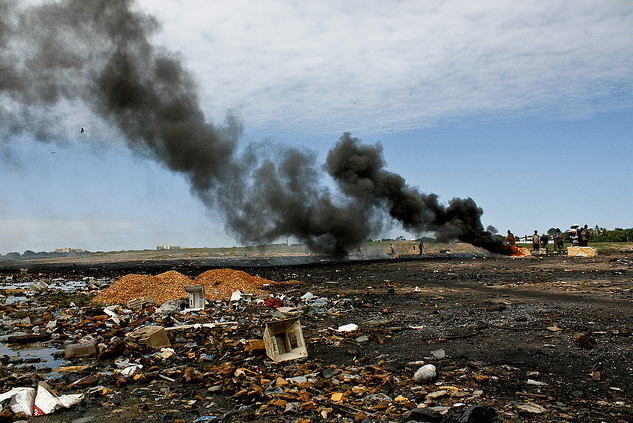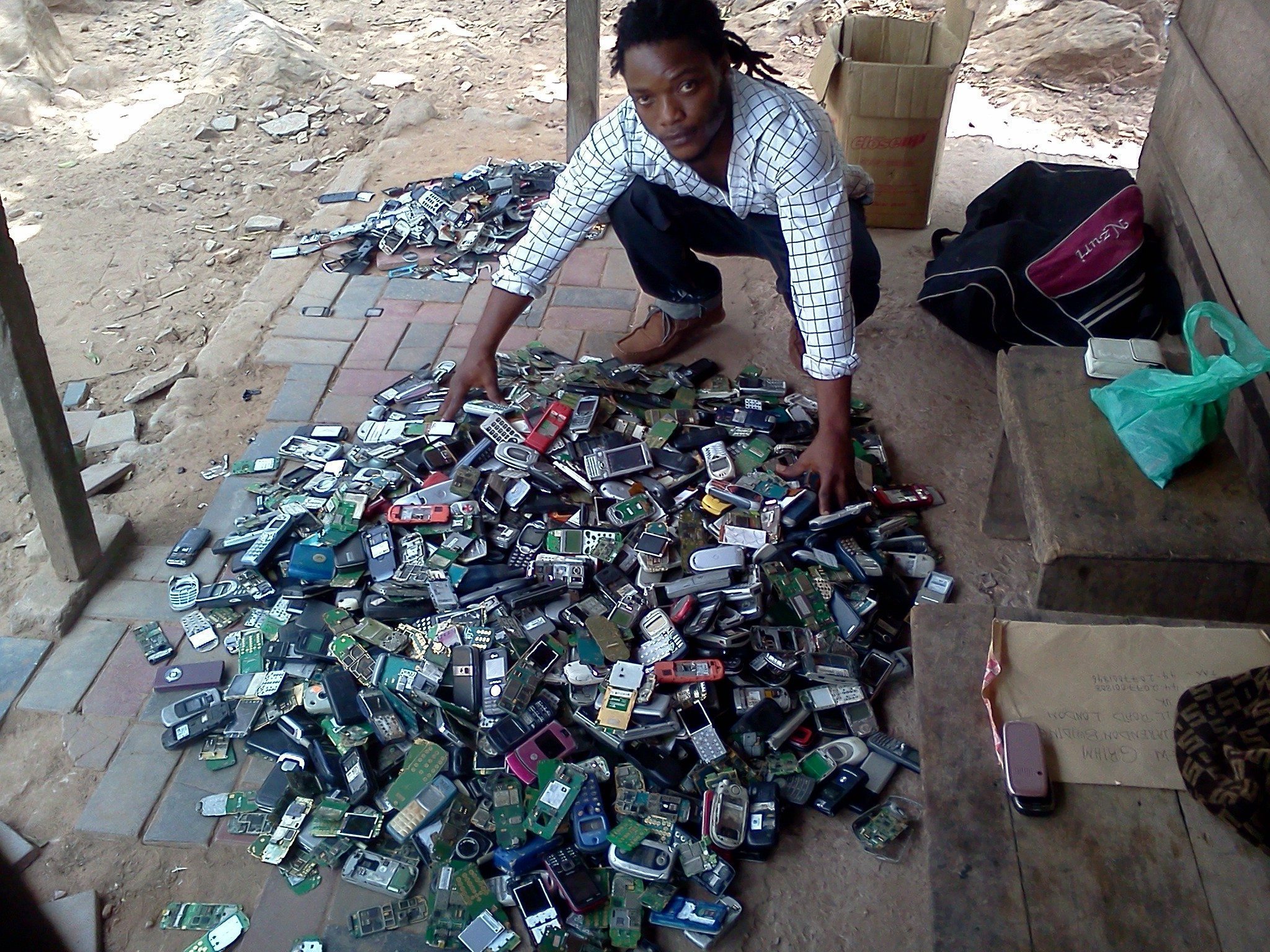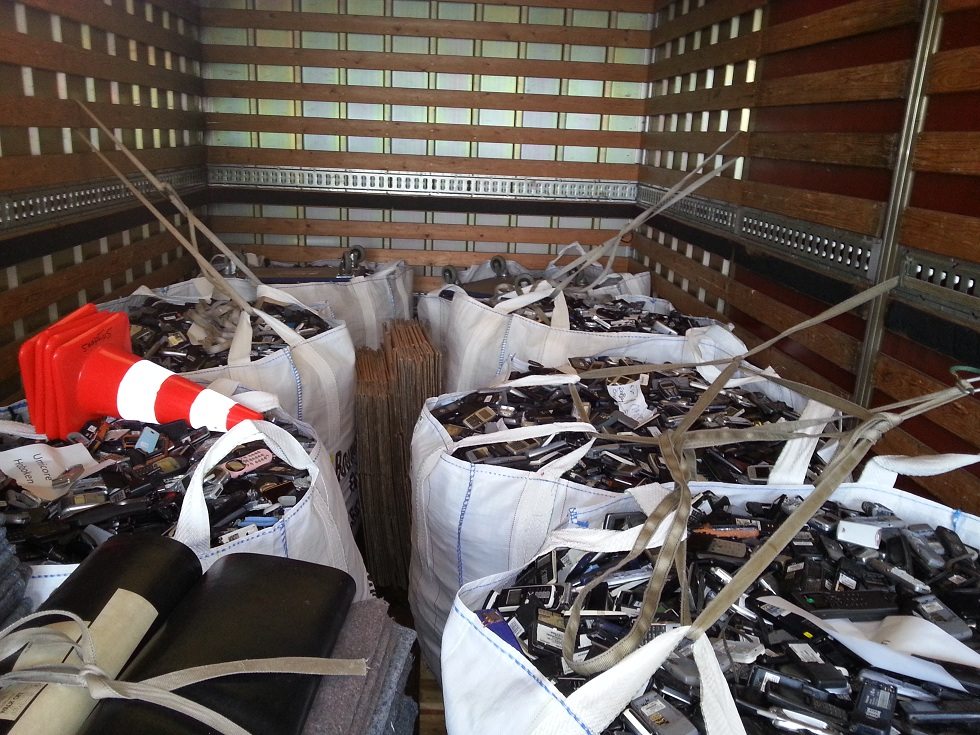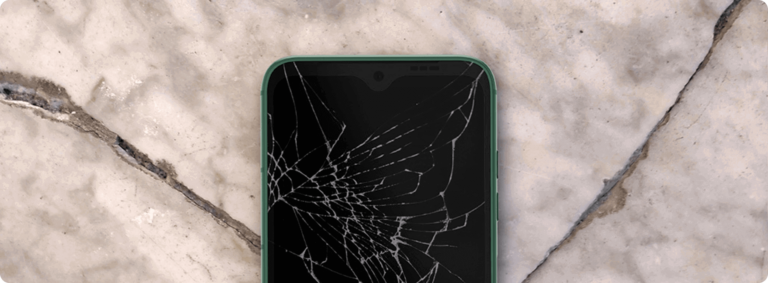Taking Back Phones for a Circular Economy: E-waste in Ghana
Editor’s Note: For this week’s blog post, our community manager Joe sat down with Bibi (Research and Outreach) to talk about our ambition to address the full life cycle of the phone. First step in this big mission: create a take-back plan that begins to address e-waste in Ghana. Future steps: integrate recycled minerals and metals in the next Fairphone.
Q: How does Fairphone approach the concept of „Lasting Value“?
A: Our goal is to make sure that minerals go back in the system and that e-waste isn’t harmful to people and planet. We’re starting small and have chosen Ghana to start raising awareness on e-waste, and setting up structures to build local economies. We’re currently working in phases to devise an economy that’s circular: a system which is regenerative in design. In true Fairphone spirit, we realize such ambitions can’t happen overnight, but the first phase has already started: for every Fairphone we sell and bring into „the system,“ we take approximately three old mobile phones out (25,000 times 3 = 75,000 phones!). Why? Because today, there are already more phones on the planet than people! And for a number of pressing reasons, proper recycling facilities are lacking in many regions and a lot of these phones end up being dismantled in a dangerous way, which in turn end up harming both people and the environment.
One of the biggest and infamous so-called „digital dumping grounds“ is Agbogbloshie in Ghana. (Find some resources from a PBS Frontline documentary, or a Greenpeace analyis and their report.)
Here, local communities burn electronic cables to extract copper and other precious materials. This way, people in Ghana earn 0,22 USD for every half a kilo of copper. „Urban Mining,“ the re-use of these materials, is something Fairphone encourages in theory, as it can lower the pressure on raw mineral extraction, but let’s see if we can promote and facilitate a more fair and sustainable way. In this way, we want to raise awareness on health and environmental risks involved, and show that phones are still valuable when they don’t work. But we also have to consider the effect this has on the local community: we don’t want to take away the livelihoods from these people by transporting it to Europe – paying for old phones is a start but at in the long run, proper recycling facilities should also be set up.
Q: So, you’ll be collecting old mobile phones in Ghana?
Yes! Thanks to „Closing the Loop“ (CtL), a Dutch organization working in Ghana with a network of local mobile phone repair shops, a container is filled up with old mobile phones in the area around the capital Accra. Read the introduction of Closing the Loop and their methods in a previous blogpost and check their website. A lot of these repair shops have phones they cannot sell or repair anymore and they don’t know what to do with them. Closing the Loop purchases these devices from these shops until the container is filled up. Now, the shop owners get an incentive not to throw away these devices and realize it’s still worth something, meaning we reduce the risk that such devices will end up as waste in a landfill like Agbogbloshie.
Q: What happens next?
A: When Closing the Loop (CtL) and its local partners have collected approximately 75,000 scrap phones (estimated by the end of January 2014), it will be shipped to an European high-quality recycling facility, where the devices will be recycled according to the highest standards, check out more information on Umicore. With the price premium of the first batch of Fairphones, we basically buy the old devices from CtL to become „owner“ of any revenue of the recycling, meaning financial revenue as well as revenue in natural resources.
It’s important to keep in mind that this is a pilot project and that there may be many challenges to overcome in these two trajectories. Broadening and improving the take-back infrastructure in a country like Ghana, requires research and lots of being present in the region. In the beginning of January, I will be going to Ghana with Joost de Kluijver (Director, Closing the Loop) to meet with various local parties and see how we can create partnerships to address the reduction of e-waste and do so in a responsible manner.
How do we make sure that relevant social and environmental concerns are addressed in collecting and storage of the electronic scrap?
For example, are the people handing in phones fairly rewarded for that? Are the batteries stored in a safe and „leak-free“ manner? And how do people know where to hand in old electronics?
The last question is something Closing the Loop and Fairphone will talk about soon with the organization Text to Change. Using SMS texts, Text to Change educates, engages and empowers people in developing countries on various issues to raise awareness and promote behavioral change. Sounds like a good addition to the partnership to improve and broaden a take-back structure in Ghana. So as you can see, for the coming months we’ll be looking into how to combine multiple talents and experts and may even form another working group (similar to our other research groups) to see how we can turn the money from the recycling of the approximately 75,000 phones that have been collected in Ghana, into something with real „lasting value.“
Q. How about the integration of recycled material in the Fairphone supply chain?
The other phase of the pilot program may even be more challenging and disruptive. But then, nobody said it would be easy, and that only increases our perseverance to pull it off. This week, together with Joost (CtL) and Miquel (Fairphone Product Strategist), I will visit the facility at Umicore, to get a better idea of the procedures for recycling of electronics. Furthermore and perhaps most challenging, we need to determine which steps and which of the (sub)suppliers we need to include, engage and convince to integrate these future recycled materials somewhere in the product system of the next version of Fairphone (the idea is to start with copper, perhaps for the printed circuit board). But I’ll let our product guy Miquel go more into depth about possibilities after some additional research and our tour at the recycling facility.
Q: What is the ultimate goal you want to carry out?
Ultimately the goals are to reduce e-waste globally and re-integrate as much recycled material in the electronics supply chain as possible to promote and facilitate a circular designed economy. This should, of course, start with considering the design of our products, how we can repair these and make it easier to re-use materials. We want to inspire others along the way to re-think this as well. In the end, we hope to have a continuous flow of use, recycling and re-use.
In addition, or maybe more importantly (that’s the thing with „circular thinking,“ what comes first?!), we should fully integrate the issue of recycling already in the design phase of our products.
It’s not for nothing that we have asked the Fairphone buyers if they really needed another adapter with their purchase, that we added a dual-SIM capability inside the phone, and that we enable easy battery replacement if it may ever run down.
This is of course really nice, but so much more can be done. In the long run, redesigning our products will hopefully create less waste and make for easier fixing. But for now there is also a lot of cleaning-up to do!
Q: In conclusion, anything else you’d like to add or share with readers?
A: Right now, it’s clear we’re buying our container full of scrap phones, and in early 2014 they will be recycled. But who our partners will be in Phase Two and Three is still being researched and planned as we speak. Besides a fact-finding trip to Umicore, the journey I’ll be making with Closing the Loop to Ghana will introduce more people who are active in these areas, so that we can follow-up with plans to these first containers in future phases.
By the way, we’ve been using these phones in certain workshops and expos (so you can see a couple hundred phones now at Rotterdam’s Boijmans van Beuningen until the end of January). They are being displayed there and then they’ll be returned to Closing the Loop and recycled (so hurry up and say your goodbyes!).
Q: And I almost forgot, what will happen to my Fairphone when it reaches „old age“ in a few years?
A: Fairphone would not be Fairphone if we hadn’t thought about that one!
Together with a partnership consisting of RoyalHaskoningDHV, SISO and TechReturns we are working on a take-back and recycling scheme in Europe for the Fairphones that are not working or not being used anymore (hopefully many many years from now).
Or any of the other phones you still have in a drawer somewhere (like millions of other people do!).
Soon in 2014, we’ll place that information on our website so you can find the details on where and how to hand in your Fairphone responsibly if you may ever be able to say goodbye to it. As you’ve been reading, we’ve got a lot of exciting trips and investigations set up in the coming weeks and months ahead – so we’ll be sure to keep the updates coming on our blog for you interested readers out there!





